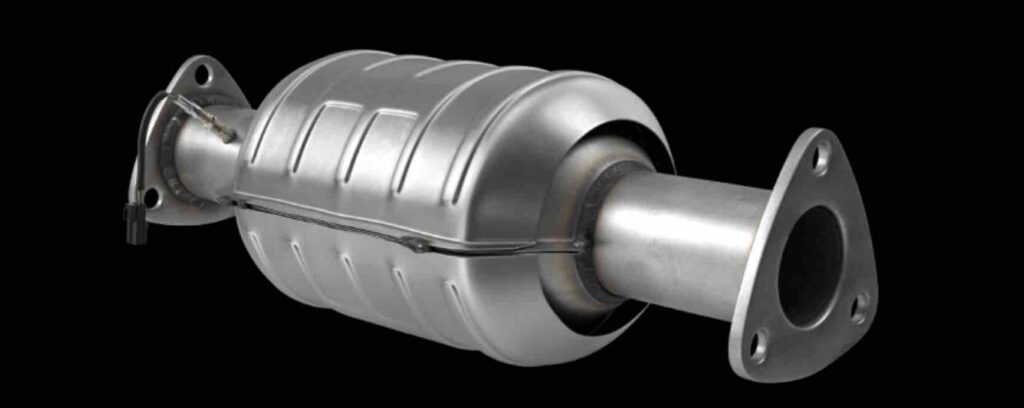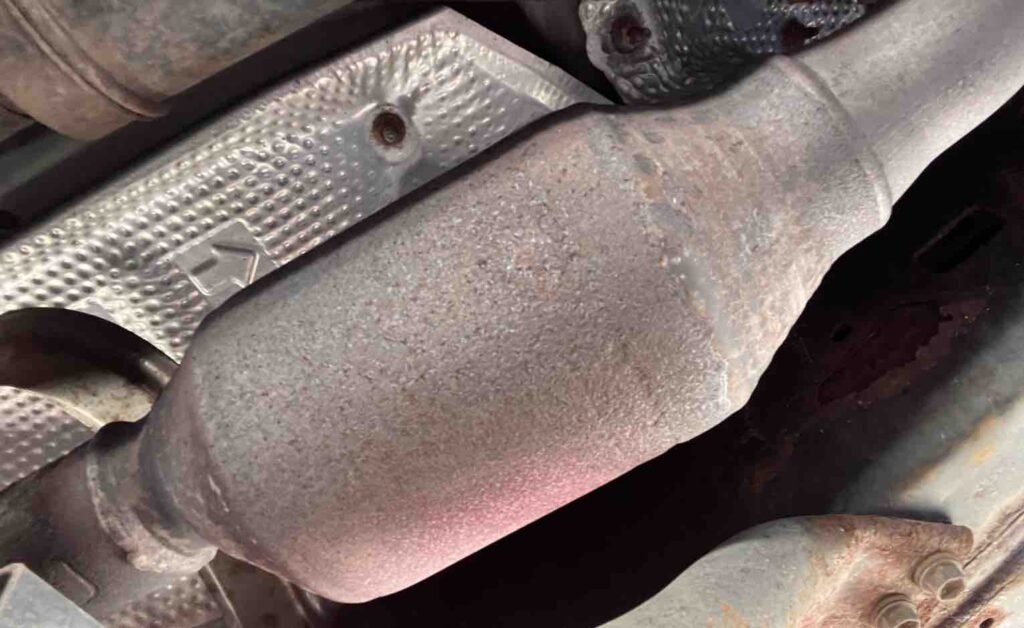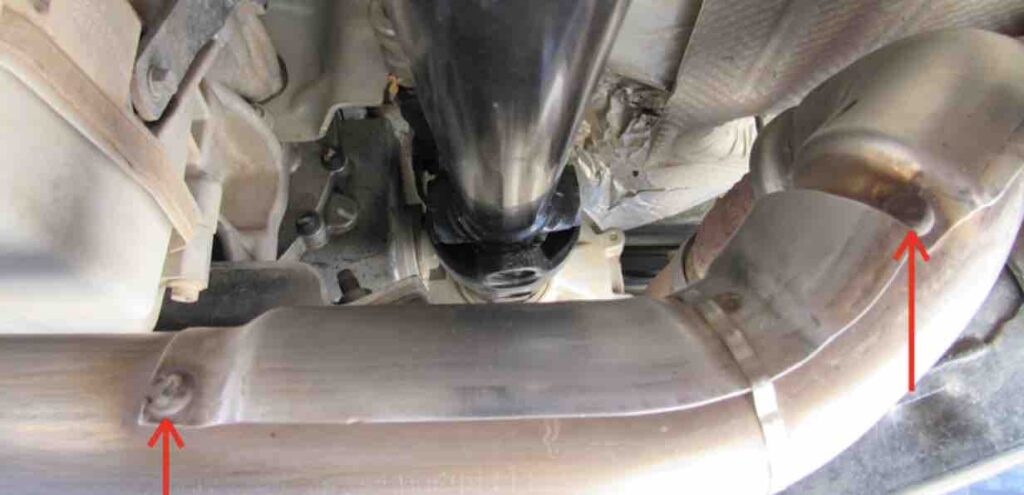Last updated on July 12th, 2023 at 09:39 am
Do All Cars Have A Catalytic Converter Legally? The catalytic converter helps reduce emissions and improve fuel efficiency, making it a crucial part of any vehicle. But do all cars have a catalytic converter legally? Find the answer in this post.
The catalytic converter works by using a catalyst to speed up chemical reactions, which in turn break down certain pollutants like carbon monoxide and hydrocarbons before they can be released from the exhaust pipe.

Do All Cars Have A Catalytic Converter Legally?
So, do all cars have a catalytic converter? Well, legally speaking, most countries require cars to have a catalytic converter installed in their cars; however, not all countries do. Think of the catalytic converter as a device that helps fight against harmful pollutants by turning them into harmless gases. So catalytic converters help save the day; by reducing environmental emissions or pollution! In the USA, it’s been a law since the 70s that new cars and trucks must have catalytic converters in them. And so it’s illegal to remove or mess with a catalytic converter if you can or not have them at all, especially if our car is made after 1975. So, let’s all be environmentally friendly and keep our cars equipped with this pollution-fighting superhero! You may want to read this catalytic converter recycling guide
Laws Related To Catalytic Converters
In the United States, for example, the Environmental Protection Agency (EPA) requires that new cars come equipped with at least one three-way catalyst or two oxidation catalysts by law.
These converters help to reduce carbon monoxide levels in exhaust gases from internal combustion engines and prevent pollutants from entering the atmosphere when you drive your car on public roads or highways.
In addition to this federal mandate, some states may have theirs, depending on local air quality regulations and other factors!
Is It Legal For All Cars To Have A Catalytic Converter?
Each country has its own set of laws. The United States Clean Air Act of 1975 requires all road-legal cars in the United States to have an effective catalytic converter installed in order to be legally driven on public roads.
This law applies not only to new vehicles but also to those that were manufactured before 1975, as long as they are still being used at present.
Federal And State Laws Regarding Catalytic Converters
Some countries have established laws regarding catalytic converters. These laws were created to protect the environment by reducing air pollution caused by vehicle exhausts.
In the United States, the Environmental Protection Agency (EPA) is responsible for enforcing the Clean Air Act Amendments of 1990, which require all new motor vehicles sold in the U.S. to be equipped with a catalytic converter and ensure that they meet certain standards set forth under EPA regulations.
These standards include limits on hydrocarbon and nitrogen oxide emissions, as well as oxygen storage capacity requirements for gasoline-powered cars and trucks manufactured after 1975.
Under this law, it is illegal for any person or business entity to remove or replace an existing catalytic converter with a “converter replacement pipe.” This type of modification can cause major increases in harmful pollutants emitted into our atmosphere due to the reduced efficiency of these modified parts compared with the original factory-installed components.
In addition, states have also implemented laws pertaining specifically to vehicle emission control systems, such as California’s Smog Check Program, which requires all registered vehicles within its borders to meet certain criteria before being allowed on public roads.
Each state has different requirements depending on location, but generally, they follow similar guidelines imposed at the Federal level while adding additional restrictions specific only to their jurisdiction.
Types Of Vehicles That Are Required To Have Catalytic Converters
While all vehicles are required to have one installed, certain types must meet more stringent requirements due to their size and power output.
One type of vehicle that requires a higher-grade catalytic converter is one with diesel engines because they produce more pollutants than gasoline engines do. Diesel cars need converters that can handle larger particles, such as soot, to properly filter out these harmful substances before they enter the atmosphere.
Large trucks like semi-trucks also require special converters since their powerful motors generate much higher levels of pollution than smaller passenger cars do. This makes them subject to stricter emission standards from local governments and organizations like CARB (the California Air Resources Board).
Is It Legal To Have No Catalytic Converter?
The answer is both yes and no, and that is because it depends on the state in which you live in, as well as the type of vehicle you own. In some states, it is illegal to drive a car with a missing or damaged catalytic converter.
While in some states, if your vehicle was manufactured before 1975, then having a non-functioning or missing catalyst will not be an issue for you legally; however, if your car was made after 1975, then removing or disabling its factory-installed catalytic converter may lead to fines and other penalties depending on local laws in your area.
Laws And Regulations Regarding The Removal Of Catalytic Converters
Catalytic converter replacement pipes may be used in certain circumstances, such as racing or off-roading, but they must meet strict emission standards set by the Environmental Protection Agency (EPA).
The EPA also requires that all new cars sold in the United States have factory-installed catalytic converters before being sold at dealerships across the country. In addition to this law, many states also have laws regarding the removal of these devices, which may further restrict their use beyond what’s outlined by federal guidelines.
Consequences Of Removing A Catalytic Converter
Without it, pollutants would be emitted directly from the tailpipe in higher concentrations. In addition to environmental concerns, removing a catalytic converter can also lead to other problems, such as decreased fuel efficiency and increased noise levels due to backpressure on the engine caused by restricted exhaust flow.
Removing or tampering with a car’s catalytic converters is illegal in many countries due to its role in reducing air pollution. Doing so may result in heavy fines or even jail time for those caught breaking this law.
Why Is Removing A Catalytic Converter Illegal?
Removing a catalytic converter from a vehicle is “illegal” in most countries due to the environmental damage it can cause.
With the CAT missing, exhaust fumes would contain much higher levels of toxic pollutants like nitrogen oxides (NOx) and hydrocarbons (HC). These substances can be damaging to both human health and the environment if they accumulate in large amounts over time.
Finally, removing or altering a catalytic converter is illegal because doing so goes against federal laws designed specifically for protecting the environment from harm caused by excess pollution. As such, anyone caught attempting this will likely face sanctions depending on their rule.
The Legal Process For Getting A Catalytic Converter Removed
The legal process for getting a catalytic converter removed can be complex. To successfully remove the device, one must first obtain permission from their local government or state agency.
This typically involves submitting an application that includes detailed information about why the removal is necessary and any potential environmental impacts of doing so. Once approved, a qualified technician must then perform the actual work of removing the converter, following all applicable laws and regulations.
In selected cases, further steps may need to be taken before or after removal as well, such as obtaining permits from other agencies or conducting tests on emissions levels before and after installation or removal of components associated with them.
Is Fixing A Catalytic Converter Expensive?
The answer to this question depends on the specific make and model of your vehicle, as well as the extent of damage that has been done. Generally, fixing or replacing a catalytic converter can be quite costly.
The cost of replacement will depend on how much labor is involved in removing and installing the new part. For example, if it’s located close to other components or requires special tools or additional parts to complete installation, you may end up paying more than expected.
Also, some makes (types) and models require special converters, which can also increase costs due to their limited availability from aftermarket suppliers or dealerships.
The Cost Of Replacing Or Repairing A Catalytic Converter
The average cost for replacing a catalytic converter ranges from $900 to $2,500, depending on your vehicle’s make and model year. If your car has two converters (which some do), then that price could double. In addition to this large expense, there will also likely be labor costs associated with the installation.
Comparison Of The Cost Of Fixing Versus Replacing A Catalytic Converter
Repairing a failed catalytic converter often requires removing it from the exhaust system, cleaning out any debris that may have accumulated inside, and then re-installing it in its original place. However, replacing your old catalyst with a new one entails more than just taking it out and putting it back in; it necessitates the purchase of all new components.
Tips For Reducing The Cost of Catalytic Converter Repair Or Replacement
The first tip for reducing costs is to keep up with regular maintenance on your vehicle’s engine and exhaust system. This will help prevent damage that could lead to costly repairs, such as clogged catalytic converters, which require more intensive work than a simple cleaning or replacing worn-out parts.
Moreover, by keeping up with routine maintenance, you may also be able to extend the lifespan of your current catalytic converter before needing a new one altogether; this will save you money both now and later down the road as well!
Conclusion
It can be said that all cars need to have a catalytic converter legally installed if they are going to be driven on public roads or highways. Any vehicle not equipped with one will likely fail an emissions test or otherwise be deemed illegal for operation on public roads.
References
- https://www.way.com/blog/do-all-cars-have-catalytic-converters/
- https://mechanicbase.com/exhaust/do-all-cars-have-catalytic-converters/
- https://19january2017snapshot.epa.gov/sites/production/files/docume
- https://www.chapelhilltire.com/catalytic-converter-theft-everything-yo
- https://carcaretogo.com/blog/what-is-the-cost-of-replacing-a-catalytic-
- https://www.maine.gov/sos/news/2022/Newlawtopreventcatalyticconv

Uchenna is a Radiographer and Auto parts mechanic who recently got his automotive diploma as an auto repair technician, and since then, has worked on fixing various car problems.
Working as just a radiographer, Uchenna didn’t just get all the fulfillment he desired, because he truly loved doing things tilted toward cars. As a kid, he would take apart his toy cars to see how they worked and would spend hours tinkering with his bike.
So, in 2017 he made the tough decision to become an auto mechanic. He threw himself into his studies and now loves every aspect of what he does.
He gets to work with his hands, solving problems and bringing cars back to life, and sharing his knowledge and easy quick-fix guide online are all part of what makes him feel fulfilled.


